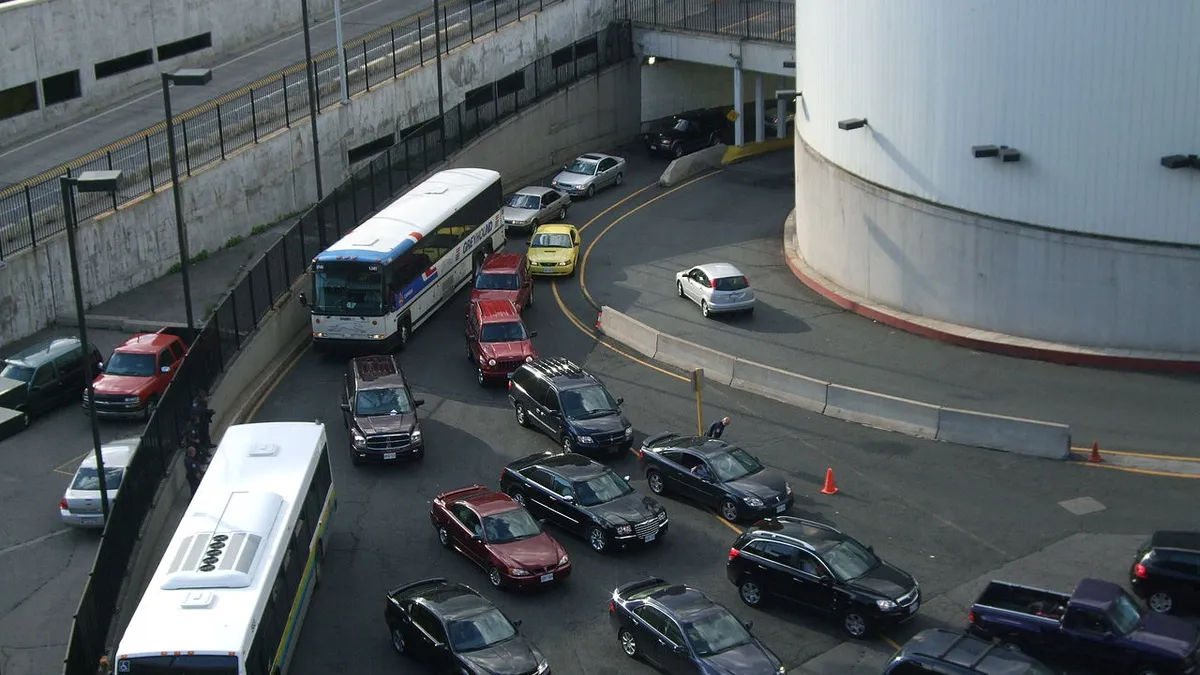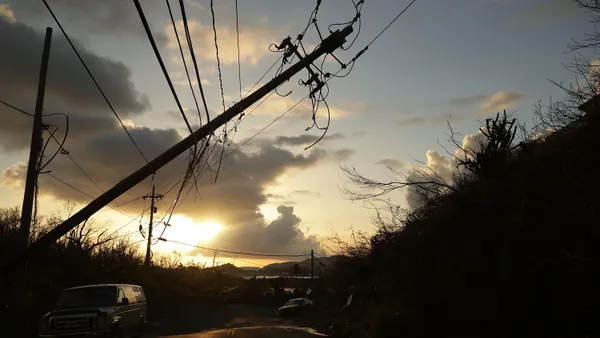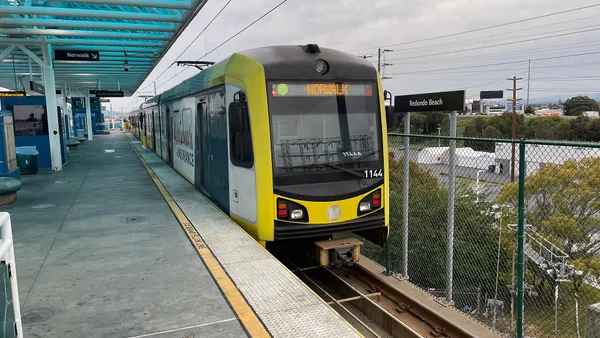Dive Brief:
-
The Windsor-Detroit Bridge Authority (WDBA) has extended the submission deadline for the $2.1 billion Gordie Howe International Bridge until September 2018, according to The Detroit News. The WDBA said it still plans on starting bridge construction in 2018, with completion scheduled for 2022 or later.
-
Crews have completed $350 million of pre-construction work on both sides of the U.S.–Canada border crossing, allowing bridge construction to begin after one of the three public-private partnership (P3) consortia finalists is selected.
-
Manuel Moroun, the owner of the existing Windsor–Detroit span, the Ambassador Bridge, has launched a series of legal challenges in an effort to prevent construction of the new bridge, but federal and state courts have thus far rejected his claims.
Dive Insight:
The WDBA announced the delay in the bidding and construction schedule in August. At the time, it was expected that final proposals would be submitted no later than the spring or summer of 2018. The goal of postponing the deadline was to give the teams extra time to consider additional project elements, including the job training, health monitoring and other requirements of a $55 million community benefit deal that the WDBA promised Detroit.
The use of P3s to tackle highway, airport and port projects is growing, but many AEC companies face a knowledge gap around the project financing, delivery and operating mechanism. To that end, the U.S. Department of Transportation has issued a set of guidelines, "Successful Practices for P3s," geared toward public and private transportation professionals engaged in P3s.
P3s are a way for cash-strapped municipalities and states to leverage the private sector to get large public projects built. The payoff for consortia is either a fixed payment for decades during the operations and maintenance phase or the opportunity to collect user fees or tolls as repayment.
One of the largest P3s so far in the U.S. — and the biggest government contract in Maryland history — is the $5.6 billion Purple Line light-rail project. Purple Line Transit Partners (PLP) is the consortium charged with financing, designing, building, operating and maintaining the line. In addition to state and federal funding, PLP has arranged for $1 billion in financing.
The rail emerged from a protracted limbo in July after activists sued to stop construction, and a federal judge revoked all approvals in August 2016. U.S. District Court Judge Richard Leon eventually ordered project officials to complete a supplementary environmental review based on questions he had about the accuracy of the original review's ridership figures. A federal appeals court stayed Leon's order last month, and crews broke ground on the project last week.
In a brief filed by the American Road and Transportation Builders Association (ARTBA) last week, the organization called on the U.S. Court of Appeals for the District of Columbia Circuit to overturn Leon's decision. If not, ARTBA said, other P3s could be halted over similar challenges, thereby discouraging private sector investment in critical infrastructure projects.













